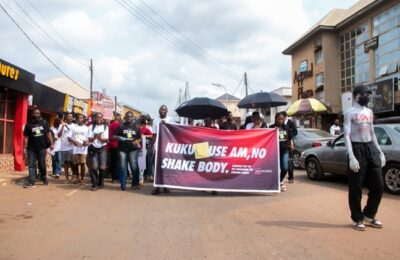“If I no get today, I go get am tomorrow.” With these words, Nigerian Afrobeat star Rudeboy, in his song Reason With Me, captured not merely a personal plea for love but the spirit of a nation bound by deferred dreams and relentless resilience. His voice, layered over rhythmic beats, has become a soundtrack for survival in a society where hardship and promise collide daily.
The song’s central refrain— “one for the money, two for the dough, three for the shawty, now I don blow”—is more than lyrical cadence; it is prophecy wrapped in music. It resonates in a country where millions navigate unemployment, inflation, and rejection, hoping for tomorrow’s dawn. Nigerian writer Chimamanda Ngozi Adichie once noted, “Stories matter. Many stories matter. They have been used to dispossess and to malign, but stories can also be used to empower.” Rudeboy’s narrative empowers by turning personal heartbreak into a collective anthem of hope.
At its core, the song dramatizes society’s fickleness: a lover who abandons the struggling man, only to return when his fortunes rise. This mirrors Nigeria’s broader cultural paradox, where worth is too often measured by material success rather than enduring loyalty. The late Chinua Achebe described it succinctly: “The trouble with Nigeria is simply and squarely a failure of leadership.” Yet, beyond politics, there is also a failure of compassion—an impatience with those yet to “blow.”
The resonance of Rudeboy’s cry— “Abi you want make I die? E no easy for me” —is amplified by both sacred and secular wisdom. The Holy Bible admonishes, “Weeping may endure for a night, but joy comes in the morning” (Psalm 30:5). And in the words of Martin Luther King Jr., “We must accept finite disappointment, but never lose infinite hope.” Together, these voices form a chorus with Rudeboy, affirming tomorrow’s possibility even amid today’s scarcity.
But the song is not merely about patience; it is also an indictment. Why must a lover, or a nation, wait until success to extend acceptance? Why must entrepreneurs, artists, and even ordinary citizens beg society to “reason with me”? This question haunts Nigeria’s political economy, where talent often languishes until validated abroad, and where leaders dismiss the cries of the poor until those voices grow too loud to ignore.
Still, Rudeboy’s story bends toward triumph. His journey from Eastern Nigeria to Lagos and to global stages is testimony that rejection today need not be the final verdict. As Nelson Mandela once declared, “It always seems impossible until it is done.” That impossibility turned reality is the rhythm beneath every Nigerian hustler’s heartbeat.
Ultimately, Reason With Me is not just a love ballad; it is a manifesto for resilience. It tells lovers, leaders, and dreamers alike: if not today, then tomorrow. But the tomorrow Rudeboy proclaims is not accidental—it is earned through grit, patience, and the unyielding insistence that hope deferred will not be hope denied.
– Inah Boniface Ocholi writes from Ayah – Igalamela/Odolu LGA, Kogi state.
08152094428 (SMS Only)




